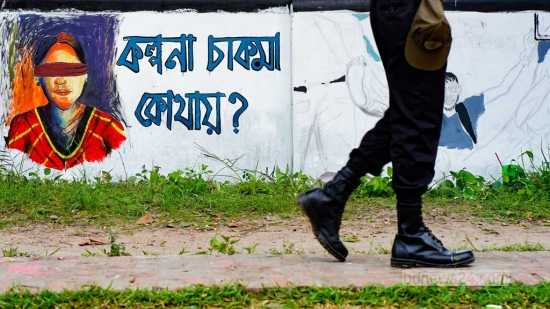Md Hasanur Rahman Tanzir – Human Rights Watch (HRW) has warned that human rights abuses will not stop in Bangladesh without “systemic reforms” despite a change of government. In a report released on Thursday, the organization expressed deep concern over various issues, including political and social unrest in 2024, torture by security forces, attacks on minorities, disappearances, a culture of impunity, and a crisis in freedom of expression.
The report said that human rights violations during and after the end of Sheikh Hasina’s rule have largely followed the same pattern. Despite the change of government, allegations of torture, arbitrary arrests, and violence have continued.
Sheikh Hasina was forced to leave power in the face of mass protests that began in July 2024. However, political revenge violence did not stop even after her fall. The report noted that about 1,000 people died in the violence during this period, including more than 100 children.
Even after the end of Sheikh Hasina’s rule, the abuses by security forces continued in the same way. The organization said that the arbitrary arrests, disappearances and filing of criminal cases against Awami League supporters, journalists and party activists are worrying.
After the popular uprising, an interim government led by Nobel laureate Muhammad Yunus took power. They formed several reform commissions to establish transparency and accountability, but the results of those initiatives are still unclear.
The report specifically mentions the issue of ‘disappearances’ committed by the law enforcement agencies of Bangladesh. According to local human rights organization ‘Adhikar’, more than 700 people were disappeared during Sheikh Hasina’s rule. Although many of them were later brought to court, more than 100 people are still missing.
The report also said that the lack of investigation and trial of allegations of torture is perpetuating the culture of impunity. Allegations of torture of students in police custody during political protests have emerged.
HRW said that the death penalty provision is still in place in Bangladesh’s existing Information and Communication Technology (ICT) law, which is in violation of international human rights law. The law has also been misused to criminalize and imprison political critics.
Although the Cyber Security Act is called a modern version of the ‘Digital Security Act’, it has curtailed freedom of expression. The organization also expressed concern about the arrest of journalists and the cancellation of accreditation of about 200 people.
The report said that after the fall of Sheikh Hasina, there were attacks on homes, shops and places of worship of Awami League supporters. More than 200 people died in these violence.
HRW also expressed concern about the situation in the Chittagong Hill Tracts. The incident of four people being killed in the army’s firing during a protest by the hill community there was mentioned as a human rights violation.
The report specifically mentioned the issue of Rohingya refugees who fled the face of repression by the military junta in Myanmar. Bangladesh has rejected 18,000 new Rohingya asylum applications, despite international law obligations.
The interim government has pledged to repatriate Rohingya refugees, but the precarious lives and violence in refugee camps are worrying.
The report also expressed frustration with gender inequality, sexual and gender-based violence, and women’s participation in the workplace in Bangladesh. The unemployment rate among women is 42 percent, the highest in the world, even among youth.
Although women played a significant role in the movement after Sheikh Hasina’s fall, their representation in the interim government’s advisory council was limited.
Regarding the labor situation in Bangladesh, HRW said that companies are failing to ensure workers’ safety in the workplace. It also cited police violence in the garment workers’ movement, the risks to workers in the dangerous shipbreaking industry, and the failure to amend labor laws.
The organization also cited the government’s failure to prevent gender-based violence in the workplace.
Human Rights Watch has stressed the need for systemic reforms in Bangladesh to protect human rights. According to them, without permanent reforms, this cycle of human rights violations will continue.
However, HRW welcomed some positive initiatives by the government, saying that more effective steps must be taken to protect human rights and that the legal framework must be reformed in line with international standards.
HRW believes that if Bangladesh wants to stop the practice of human rights violations, it needs not only a change of leadership, but also effective and permanent systemic reforms. They called for concerted action to ensure human rights at the national and international levels.




















